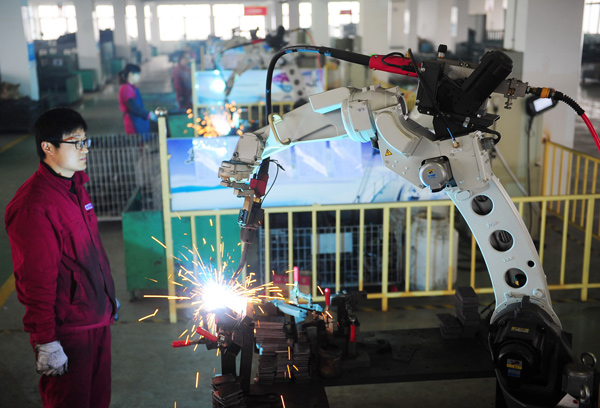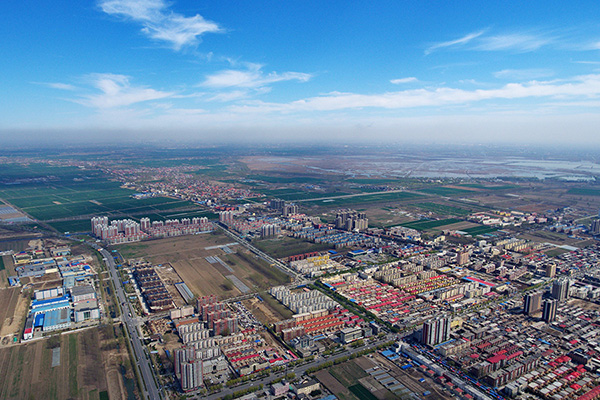Cobots to change face of factory floors
 |
|
A robot performs a soldering job at an auto parts manufacturing company in Fuyang, Anhui province. WANG BIAO / FOR CHINA DAILY |
Collaborative robots, known as cobots, have become popular among electronics and other light industry manufacturers in China, as traditional industrial robots have failed to provide a feasible solution to challenges related to comprehensive automatic upgrading.
Several emerging robot firms have released cobots, such as ABB's YuMi, Rethink Robotics' Sawyer, and Universal Robots' UR family of robots.
A cobot's identifying feature is a robotic arm that can be fixed to any production line or an automatic guided vehicle in several minutes, with a hand to pick up and place small electronic components.
Compared with traditional robots, this new generation is smaller in size and safer in the working environment without being fenced off. Cobots use human hands to guide its moving route, instead of complex programming.
"Factories for 3C (computer, communications and consumer) products are difficult to transform into an automatic production line," said Bi Yalei, professor at the Shenzhen Institute of Advanced Technology under the Chinese Academy of Sciences and secretary-general of the Shenzhen Robotics Association.
He told China Daily that the reason is their product types are very diversified and constantly changing, so such factories have a high requirement in terms of robots' flexibility. Traditional robots are usually heavy, hard to move, and need as long as a month to install, he added.
Bi estimated that industrial robots and humans will interact frequently in the future, rather than totally replacing human labor, but he admitted that cobots are currently slower than traditional models.
Cobots' global market, mainly fueled by electronics-related manufacturers, will increase tenfold from 2015 to 2020, reaching over $1 billion, according to a report from ABI Research.
To meet the demand, established industrial robot companies are altering rapidly. "Our strategy is changing from the automobile industry to electronics and other general industries", said Tobias Daniel, marketing and sales director of Italy-based Comau Global Robotics and Automation Products.
He said the company aims to see revenues from general industry reach 50 percent of its global total, or even higher, in future. Its total orders from the nation hit 2 billion yuan ($290 million) in 2015.
The company has already designed two small robots to satisfy high demand in the 3C sector.
It will launch a new cobot-AURA-at the end of this year, especially innovated for China's 3C market.
Adam Sobieski, general manager of Universal Robots China, said on March 30 at the Shenzhen International Machinery Manufacturing Industry Exhibition that many 3C manufacturers in China-such as ZTE and Foxconn-are purchasing their cobots at impressive rates.






















